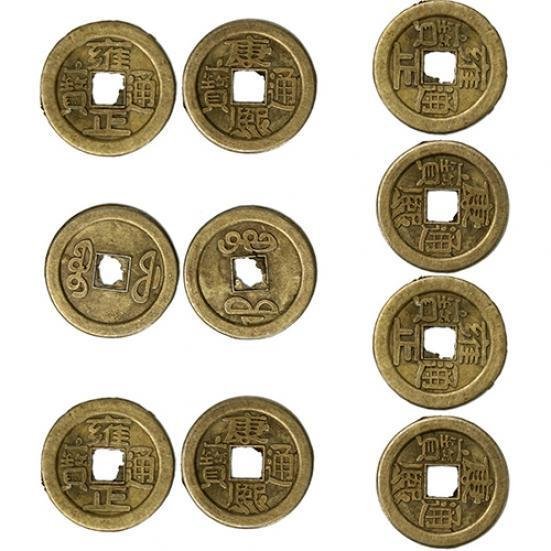In the realm of numismatics, the duplication of fortune coins presents significant legal and ethical challenges. Fortune coin duplication, often treasured for its historical value and rarity, can become targets for duplication and counterfeiting, leading to complex legal issues. Understanding these legal implications is crucial for collectors, dealers, and anyone involved in the trade of such valuable items.
What Are Fortune Coins?
Fortune coins, also known as lucky or prosperity coins, are often associated with various cultures and historical periods. They are believed to bring good luck and prosperity to their owners. These coins can be ancient artifacts or modern creations, but their value often lies in their rarity, historical significance, and cultural importance.
The Problem of Duplication
Making copies of the original coins with the intention of deceiving is known as duplicate or counterfeiting. On account of fortune currencies, duplications can essentially influence their fairly estimated worth, discolor their verifiable credibility, and bamboozle clueless gatherers.
Legal Framework Governing Coin Duplication
1. Intellectual Property Laws
Intellectual property rights are frequently violated when fortune coin duplication are counterfeited. Unique plans, stamping methods, and, surprisingly, the utilization of explicit metals can be safeguarded under protected innovation regulations. The reproduction of these elements without authorization is illegal and subject to legal action.
2. Forgery and Fraud Laws
In numerous locales, copying coins with the expectation of selling them as authentic things is viewed as fraud. This is a serious crime that can result in fines, jail time, or both. Since deceiving buyers about the authenticity and value of counterfeit coins, fraud laws also apply.
3. Consumer Protection Laws
Consumer protection laws aim to safeguard buyers from deceptive practices. Selling duplicate fortune coins without disclosing their true nature violates these laws. Victims of such practices can seek legal remedies, including refunds and damages.
Case Studies Highlighting Legal Actions
Several high-profile cases illustrate the legal ramifications of coin duplication:
- United States v. Velde: In this case, a man was prosecuted for counterfeiting ancient Roman coins. The court found him guilty of forgery and fraud, resulting in significant penalties.
- R v. Charlton: A dealer in the UK was sentenced for selling counterfeit medieval coins. The case underscored the severity with which courts treat such offenses.

Legal Remedies for Victims of Coin Duplication
Victims of fortune coin duplication have several legal avenues to pursue:
- Filing a Lawsuit: Buyers can sue sellers for breach of contract, fraud, and misrepresentation. Successful lawsuits can result in compensation for the financial loss incurred.
- Reporting to Authorities: Counterfeiting is a criminal offense. Reporting suspected counterfeiters to law enforcement agencies can lead to criminal investigations and prosecutions.
- Seeking Arbitration: In some cases, arbitration or mediation may be a quicker and less expensive way to resolve disputes related to counterfeit coins.
Preventive Measures to Avoid Legal Issues
1. Authentication Services
Using reputable authentication services can help verify the authenticity of fortune coins before purchase. These services employ experts who use advanced techniques to detect duplications.
2. Due Diligence
Collectors and dealers should conduct thorough due diligence before buying or selling fortune coins. This includes researching the coin’s history, provenance, and market value.
3. Documentation
Keeping up with point-by-point records of coin exchanges, including declarations of realness, buy receipts, and evaluations, can give significant proof in case of a lawful question.
4. Education and Awareness
Staying informed about the latest trends and techniques in coin duplication can help collectors and dealers recognize and avoid counterfeit coins. Attending numismatic conferences, reading industry publications, and joining collector associations are effective ways to stay educated.
Conclusion
The duplication of fortune coins poses significant legal challenges, from intellectual property violations to consumer fraud. Understanding the legal implications and taking proactive measures can protect collectors, dealers, and the integrity of the numismatic market. As with any valuable collectible, vigilance, education, and adherence to legal standards are key to navigating the complex world of fortune coin duplication.
FAQ’s
1. What is fortune coin duplication?
Fortune coin duplication refers to the act of creating counterfeit or unauthorized copies of coins that are typically associated with good luck, or fortune, or are collectible items. These coins may hold significant monetary, cultural, or sentimental value.
2. Is duplicating fortune coins illegal?
Yes, duplicating fortune coins without authorization is generally illegal. It constitutes counterfeiting, which is a criminal offense in many jurisdictions. This can lead to severe legal consequences, including fines and imprisonment.
3. What are the potential legal penalties for duplicating fortune coins?
Legal penalties for duplicating fortune coins can vary by jurisdiction but often include hefty fines, seizure of counterfeit coins, and potential imprisonment. The severity of the penalties typically depends on the scale of the operation and the intent behind the duplication.
4. Can owning duplicated fortune coins lead to legal trouble?
Yes, owning duplicated fortune coins can lead to legal trouble, especially if the owner is aware that the coins are counterfeit. Possessing counterfeit currency, even if not involved in its creation, can result in legal penalties.
5. How can I verify the authenticity of fortune coins to avoid legal issues?
To verify the authenticity of fortune coins, you can:
- Purchase from reputable dealers or directly from official sources.
- Seek certification from recognized numismatic organizations.
- Use professional appraisal services.
- Look for distinguishing marks, serial numbers, or other features that denote authenticity.




